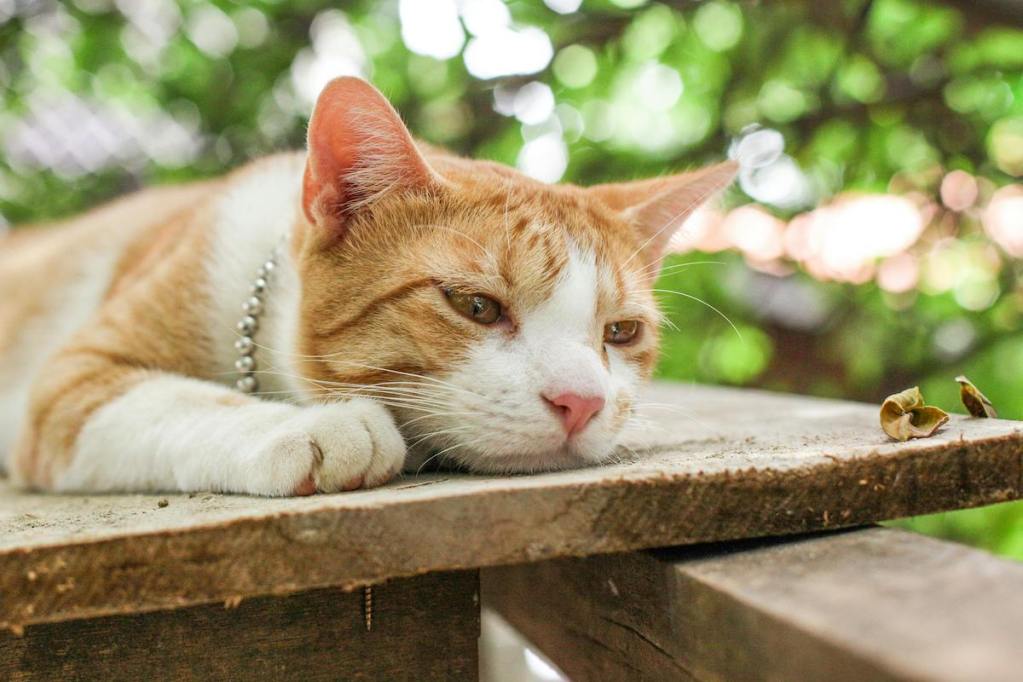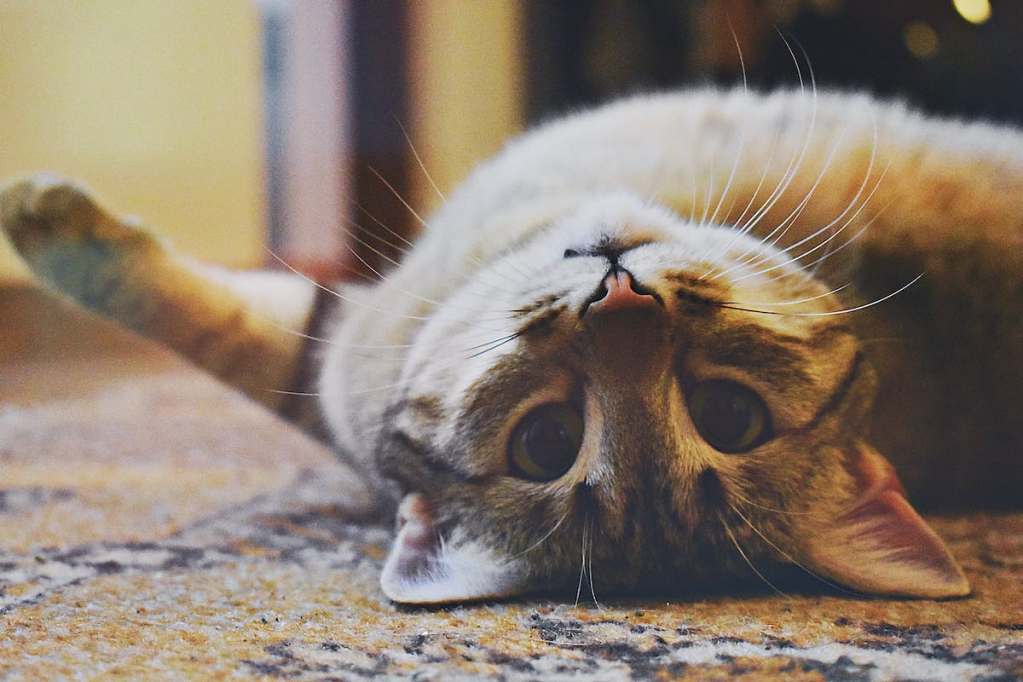
When you signed on to cat parenthood, you likely knew you’d have to deal with waste management, like cleaning litter boxes (or scooping poop if your kitty is an outdoor one). Feeding and providing a cat with plenty of water are also expected basics of having a cat. However, cats are full of surprises, from wake-up calls for pets (aren’t felines anti-social?) to a Bah-humbug relationship with holiday trees.
An unwelcome surprise of kitty parenting? Cleaning up vomit. To be frank, it’s gross. However, seeing that your cat threw up is likely also concerning to you. When people throw up, they’re often sick — can the same be said for cats? If you’re wondering, “Why is my cat throwing up?” your first call should be to a vet. Here’s why.

Chronic vs. acute vomit in cats
Broadly, cats who throw up are either experiencing “chronic vomiting” or “acute vomiting.”
Cats who vomit chronically do so monthly and potentially daily. The vomiting usually only happens once or twice during the day in question—a call to a vet for an investigation into why is necessary. We’ve delved deeper into why later, but your cat could have a disease or GI upset. Moreover, chronic vomiting could trigger dehydration or malnourishment.
Acute vomiting occurs when a cat who doesn’t usually vomit starts throwing up. Now, all cats will likely vomit once in their lives, and a random episode of throwing up doesn’t necessarily mean you need to call a vet. However, if a cat who doesn’t typically throw up vomits more than three times in two to three days, call your pet’s doctor. Further, you should call a vet ASAP if even one episode of vomiting is accompanied by signs of weakness, lethargy, lameness, and other signs of discomfort.
Why is my cat vomiting?
The answer to this question requires a diagnosis from a vet. However, cats throw up for various reasons, ranging from allergies to cancer. These reasons are common culprits for triggering an up-chuck episode in a cat:
- Ingesting something toxic. Foods (like chocolate and garlic), plants (including the lilies that make for popular host gifts on Easter), and other household substances are toxic to cats. Cats may vomit as a way of eliminating the toxin. The ASPCA’s Poison Control Hotline (888-426-4435) can walk you through the following steps if your vet’s office is closed.
- Food allergy. Your cat may be allergic to their typical kibble and wet food diet. Special foods are available to cats who have this issue.
- GI issues. Toxins and food allergies can cause GI upset. However, other causes include ulcers, constipation, and even cancer.
- Infections. Like humans, cats are prone to infections and may experience vomiting as a side effect. Infections can be viral or bacterial and might include salmonella and giardia.
- Parasites. Even indoor cats can get parasites. You may (accidentally) drag one in on a shoe, or a dog might pick one up on a walk by mistake. Hookworm and tapeworm invasions can lead to a cat throwing up.
- Organ-related diseases. Throwing up could be a flag that a cat is suffering from kidney or liver disease or pancreatitis. Sometimes, these diseases are treatable, especially if caught early.
- Endocrine diseases. An over or underactive thyroid (clinically referred to as hypo or hyperthyroidism) can occur in cats, and vomiting may be a symptom.
- Neurological. Sometimes, a cat’s stomach may be sounding the alarm for their brain. Vomiting can indicate a cat has vestibular disease (typically coinciding with difficulty balancing) or encephalitis (when the brain’s lining is inflamed).
- Cancer. Unfortunately, vomiting can be a sign of cancer in the stomach or other body parts.
- Stress. Sometimes, a cat may throw up in response to stress, such as significant life changes like a new baby or cat.
What to do if your cat is throwing up
You’ll want to call a vet. Spiraling is understandable — you love your cat — and you may be tempted to ignore cat throw-ups. However, your vet is the best person to let you know whether or not you should worry, plus what to do next. Here’s what could happen after you see a vet.
Additional testing
Your veterinarian will gather information from you, such as when the vomiting started and the frequency of episodes. From there, they might recommend additional testing, including:
- Bloodwork
- Ultrasound
- X-Ray
- Endoscopy
- Laparotomy
The results of these tests will likely help your vet uncover the answer to the question, “Why is my cat vomiting?”
Treatment
Once your cat has a diagnosis, treatment can begin. Treatment options include:
- Antibiotics
- A specialized diet
- Surgery to remove tumors
- Fluids to treat co-existing hydration
- Stress reduction tactics
Summary
A cat vomiting is a sign something is up. Some cats throw up chronically, while others may be experiencing “acute vomiting.” Regardless of which bill your kitty fits, you want to get a vet on the line. Even chronic diseases may be treatable, particularly if caught early. Also, benign issues left untreated can trigger more significant problems — for instance, vomiting can cause dehydration and malnourishment. Common culprits include food allergies, ingestion of toxins like garlic or chocolate, parasites, and infection. Sometimes, a cat might throw up because of a severe or chronic condition like cancer or pancreatitis. Again, the precise cause of your cat’s vomiting must be diagnosed by a vet, so get yours on the line.






